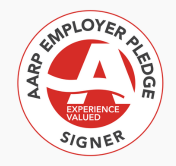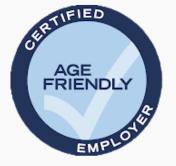The COVID-19 pandemic has taken a toll on women, especially minority women and caregivers. More than 4 million women lost jobs in the U.S. during the pandemic, wiping out unprecedented gains over the past several decades. As of June 2021, 1.8 million women in the U.S. have yet to return to work, mostly due to the need for flexibility to meet demands at home.
Eventually, most women return to work. Saving for retirement, paying for college, divorce, or a growing desire to do something for ourselves are motivating factors. Studies show that getting back in is harder for women, and even more challenging as women age and their career gaps lengthen. Yet returners remain an amazing, untapped talent pool who offer tremendous value to employers. Whether your re-entry is imminent or a distant thought, there is a lot you can do now to prepare for a successful (and much less frustrating) return to the paid workforce. Consider these tips.
Believe in Your Professional Self
Most importantly, do WHATEVER it takes to maintain or regain confidence. You bring tremendous value to employers. Not only do they benefit from your diverse skillset, but you bring good judgement, commitment, unparalleled productivity, and trusted communication skills to the workplace. Start to become aware of how you communicate your value. Most re-entry candidates begin by highlighting the number of years that they have been out of work. No employer is going to hire you for your gap. Avoid long-winded, defensive, or apologetic explanations with lots of personal details. Instead, be proud of your decision to stay home, and quickly shift the conversation to your skills and accomplishments. Be careful not to dismiss your volunteer work because it is unpaid, or prior professional accomplishments because they are old. Think of yourself as the talented professional you are, and people in a position to hire you will think of you as the same. Watch this Amy Cuddy TED Talk for a little motivation and encouragement.
Express Excitement and Readiness to Return
Two top concerns (misconceptions, we believe) of employers hiring re-entry professionals are their readiness to return and commitment to their work. If you left the workforce due to health issues or to care for aging or sick family members, clearly state to the prospective employer that the issue is now resolved. If you left work to raise a family or to care for children, be sure to indicate that you have the support in place to transition back to paid work. Re-entry candidates, grateful for the opportunity to get back in and intent on proving themselves, have staying power. Click here for more ideas for responding to common employer concerns specific to re-entry professionals, including the concern that you may be over-qualified.
Update Your Resume and Get Intimate with the Details
Update your resume, focusing on the most relevant successes, accomplishments, and results. Quantify as much as possible, or at least identify the impact or benefits of your work. Your resume should be concise, with only substance. Think of your resume as a reflection of the top skills you have and want to use in the future, rather than a laundry list of past job duties. Own your gap, but do not draw attention to it by giving yourself a fancy title like “Manager of Household” or providing too many details, i.e. “took 10 years off to raise four children”. Instead show that you have kept your skills sharp and/or learned new skills. This can be reflected on your resume by highlighting volunteer experience or recent trainings and certifications relevant to what you want to do next. Try not to obsess over your resume, but make sure you are familiar with the details so you come across as sharp and fresh during an interview. Use this formatting and editing tip sheet for quick reference.
Stay Current in an Ever-Changing World of Technology
Outdated technology skills are a top concern of employers hiring re-entry professionals, and they are often the reason for a failed return. Upgrade your software and systems now, and have fun using and learning the technology. Claiming in an interview that you are a “quick learner” is not an effective strategy. Identify the basic and specialized computer skills you will need to be competitive. Take a skills assessment test. Learn and apply as many skills as you can before you interview for a job. Lastly, demonstrate during an interview that your technology skills are strong by using technical jargon, sharing assessment results, providing examples of how you utilize a specific software, or sharing work samples. If this sounds overwhelming, check out these Workplace Readiness and Technical Readiness resources.
Consider Part-time as a Transition Option
Today professionals returning to work have more options than ever before. Smart employers who survived the pandemic view flexibility as a business strategy and not simply an employee perk. The notion that you have to be “all in” or “all out” is simply outdated. Part-time may be a great option as you transition back to paid work, as it allows you to ramp up at a more comfortable pace and to meet caregiving demands at home. It can also serve as a great stepping-stone to that ultimate dream job.
Sheila Murphy is Co-Founder of FlexProfessionals, a firm that matches experienced professionals seeking meaningful, part-time employment with growing businesses in need of top talent. Featured on The Today Show, Sheila is a career re-entry expert, work flexibility advocate, and seasoned speaker/trainer on a variety of job search and career development topics.
Title Tag: Returning to Work After Covid | D.C. & Boston Metro | FlexProfessionals
Meta Description: Returning to work after the Covid pandemic has been especially difficult for women. Read up on tips for a successful return and contact us to learn more!









